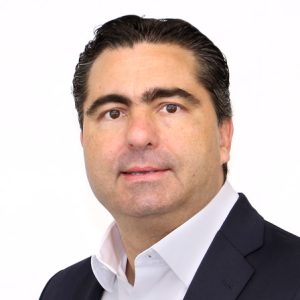What challenge(s) do our clients face?
A core capability for companies facing major transformations
In our perspective, a Project Portfolio Management Office (PMO) is a robust enabler for several business contexts or needs, for example:
- A major transformation such as a business model change (e.g. business model disruption, digital transformation ERP changes, network, and operations redesign)
- M&A related-initiatives (e.g. acquisition series rollout, post-merger integration, joint venture, corporate venture)
- An aggressive expansion (e.g. store expansion, employee attraction, and hiring, boost in salesforce, salesforce expansions, takeovers)
- A downsizing of the company (e.g. turnarounds, sector interventions, cost-reducing, carve-outs, phase-outs)
In any of these cases, it makes sense to have a well-structured organizational entity that provides alignment around project portfolio and an effective, efficient, and coordinated management of it. A Project Management Office often is that entity, empowering organizations in centralizing information and in ensuring effective control.
How do we help?
We support our clients in designing, planning, and implementing an empowered PMO to ensure that strategic projects deliver their planned business goals.
Integration does that through a hands-on and iterative approach to improve our client’s internal capability, instilling a project management culture, processes, and governance which enables them to deliver the desired transformation and achieve the business results. This is achieved through five main aspects:
- FOUNDATION: Deep diagnosis of the company objectives, capabilities, cultural aspects, and project management needs
- PMO SCOPE: Definition of the scope and service level of the PMO
- CORE CAPABILITIES Structure of the PMO methodology and tools
- TALENT & MINDSET: Definition of the talent structure, governance model and relevant indicators to monitor achievement
- DEPLOYMENT: Implementation of the initial pilots and the full roll-out of the PMO
What are the benefits?
Throughout implementing a Project Management Office, numerous benefits will be realized from the very beginning of the methodology application. From our experience delivering previous projects our clients have highlighted the following as relevant advantages:
OVERSIGHT:
- Aligns project portfolio with business strategic drivers
- Offers objectivity and a broader perspective to balances different interests of what’s best for the company
- Raises awareness of the company’s project portfolio in line with the executive level
CONTROL:
- Creates a culture of project management, with planning discipline stronger controls
- Optimizes resource allocation in line with corporate criteria
- Facilitates resource synergies, coordinated communication, best practices and standard policies
- Enables high-quality results tracking of the project portfolio
ISSUES RESOLUTION:
- Foresees issues and risks in implementing projects and accelerates problem-solving
- Facilitates the identification and resolution of conflicts for projects in the portfolio
- Reduces delays in the delivery of projects for faster results
- Increases the capability to manage budget over-runs
How does it work?
Pragmatism, simplicity, and teamwork will be key drivers along with our project execution.
To achieve a successful Project Management Office implementation, the following phases are usually executed to ensure effective and reality-connected results:
As each project is unique, these steps are illustrative and aren’t exhaustive nor written in stone. They will depend on company needs, culture, and context.
For Integration, a positive legacy is very important and so we ensure that our clients have the capabilities to keep the PMO running after our support period. With this in mind, we focus on ensuring that the changes are fully embedded in the company and that staff members feel comfortable taking on ownership and control of the PMO. We believe that this can only be achieved through close collaboration with our client’s teams throughout the project lifecycle, through joint diagnosis, design, implementation, and appropriate training side by side with us.
SUCCESS STORIES
CHALLENGE
Two leading brands in Brazilian pharmaceutical retail, had recently undergone a process of unification. Given the size of the two organizations (combined points of sale >2,000) it was necessary to carry out many strategic and complex initiatives to achieve harmonization in processes and systems and achieve various synergies.
Integration was asked to support in the creation of a PMO, focused on ensuring the implementation of 24 initiatives which ranged from opening new Distribution Centers to financial control enhancements.
APPROACH
Given the broad variety of initiatives, it was important to develop a management system that was not too rigid – allowing for visibility, control and prioritization across quite a varied portfolio. Working closely with the client team, we developed a bespoke management methodology that integrated into their current systems and tools.
As this was a moment of PMI, the ways of working between the two organizations different across areas and so the PMO played an active role in ensuring standardization, sharing best practices and guaranteeing communication. It also had an objective of developing a project management culture in the new organization and so over our three years of involvement, we focused closely on developing internal capability through close collaboration with the client teams, definition of business partners/champions and more formalized training.
RESULT
As a result of this methodology application: over three years all 24 projects were implemented successfully. This included opening of two new Distribution Centers, launch of a new business unit, integration across >2,000 points of sale, improvement of processes and controls and creation of a new project management culture inside the company.
The PMO was fundamental to the integration process and in reaching a new level of market share in the pharmaceutical retail market.
CHALLENGE
With the opening up of the oil and gas market in a large Latin American country, gas stations which used to be owned only by the state could be privately owned. A fuel retailer decided to start operations in this country aiming to achieve an aggressive expansion.
With a higher than USD 700M budget after a joint venture between one of the largest commodity traders in the world and a 1400 stations network, Integration supported the new company to ramp up its operations, defining the strategy, a corporate governance model and the talent structure.
APPROACH
As the company was starting effectively from scratch, we had to define a huge number of interrelated projects which would take it from set-up into operation. This involved coordination between industry experts, senior leadership and Integration to create a full picture of all the required activities which ranged from logistical to legal.
More than 85 interrelated projects were planned and managed through a sophisticated Project Management Office which mapped out the key milestones, dependencies and tracking method. Strategic alignment within the project portfolio was ensured through extensive governance routines to guarantee all initiatives and efforts were pulling towards the defined objectives in these important early phases.
RESULT
A coordinated and efficient project governance model orchestrated the aggressive growth of the company and in less than 2 years this company became one of the top 3 leaders in the market in terms of share and brand presence.
CHALLENGE
One of the world’s most famous direct selling businesses was undergoing a business model transformation in its European operations to combat a trend of low profit and sales decrease over 2-3 years.
Some of its main challenges included (i) realizing cost reduction through back-office centralization and processes optimization, (ii) implementing a new business model to recover sales, and (iii) ensuring a good service level to the sales force and customers during the transition. To manage the organizational change and project portfolio implementation it was decided that a PMO was essential to enable a smooth business transformation and in this regard, Integration was hired to support.
APPROACH
We started by understanding the current projects aligned to the transformation, gathering, planning, and tracking these from a central PMO. This allowed us to identify potential new projects which need also to be added to the portfolio to realize the organization’s strategic goals. Overall this led us to be orchestrating and tracking more than 28 projects across 17 countries in Europe, impacting every area of the business from Finance to Sales.
In order to avoid costly delays and manage significant risks, a detailed work plan was created to ensure interdependencies amount the 28 projects were well understood and managed. Furthermore, tracking of every single project was standardized, and shared between all executives from Europe and corporate management in the USA on a weekly basis, allowing rapid business decisions to take place, correcting the course of initiatives, or adjusting resources.
RESULT
In the short-term, we achieved benefits ranging from resource synergies, strategic alignment of objectives, and shared best practices. In the long-term, the savings of implementing the PMO were estimated to be between USD 14 to 21M.
OUR INDUSTRY EXPERIENCE
Integration has accumulated important experience in several industries when implementing Project Management Offices. We have created a methodology that is proven and standardized at its core, but that can adapt to the particularities that each Industry has, and our team is cognizant of this need.
In particular, we have operated in and gained precise expertise in FMCG, Pharmaceutical, Private Equity & Investments, Chemicals, Beauty & Healthcare, Oil & Gas, and Retail. This knowledge allows us to have a broad point of view in terms of benchmarks, references, and best practices application across different businesses.








